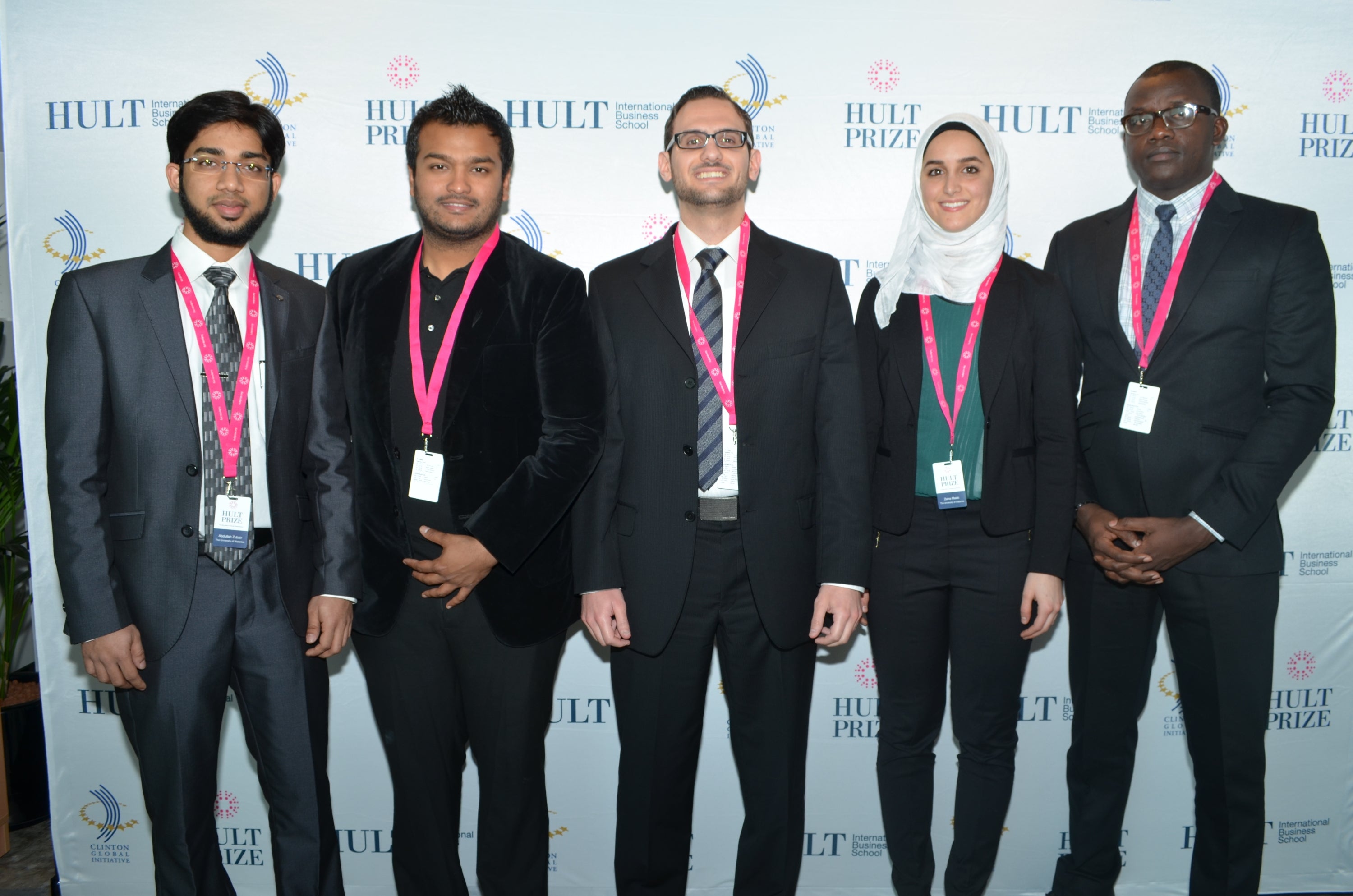A group of students and grads is tapping into Waterloo’s entrepreneurial spirit to bridge their passion for business with the desire to help others. The result is Empower Health, an organization committed to providing diagnostic and wellness programs to the world’s slum dwellers.

Abdullah Zubair, Sajjad Kamal, Mustafa Kurdi, Zeina Makki and Femi Giwa created Empower Health (EH) by combining their diverse perspectives on non-communicable diseases, such as heart disease and diabetes, found in urban slums. The world holds 250 million slum dwellers who suffer from these diseases, and, if ignored, the cost of care will rise to $7 trillion by 2025. Combining their varied backgrounds at Waterloo (from engineering to pharmacy and business), the EH team discovered a way to offset these numbers with wellness programs, all funded through the collection and monetization of the slums’ organic waste.
I want to make changes in the lives of these millions of slum dwellers, and give a sense of meaning to my entrepreneurial career.
— Abdullah Zubair, Empower Health co-founder and Management Engineering graduate student
A sustainable solution
Partnered with the Red Cross, the organization is working to implement a community-based approach to Mumbai’s Dharavi slum. With slum dwellers engaged during almost every step of the process, including waste collection and leading programs, EH offers a self-sustaining system. It’s a truly humanitarian effort, where the EH team provides for slum dwellers, but also helps them to provide for themselves.
Every week, EH workers collect organic waste from individual households. Once collected, the waste is composted and sold as fertilizer. Disposing of the waste outdoors saves gas emissions, and allows EH to collect carbon credits for their composting process. These carbon credits can then be sold to industrial companies looking to offset their environmental footprint. EH uses sales from fertilizer and carbon credits to support its programs, which focus on cardiovascular diseases, chronic respiratory diseases, diabetes and mental illness.
International competitors
In January, EH represented Waterloo in the 5th annual Hult Prize, where thousands of university students worldwide teamed up to create start-ups that solve a major social issue. With 10,000 applicants in total, EH was one of only 300 start-ups to pitch their idea as a regional finalist.
After the competition, EH continues to work on their pilot project in Dharavi, engaging up to one million slum dwellers in their organic waste collection and generating as much as $3 million for their programs per year. In the coming years, the organization plans to expand its work through East Asia.